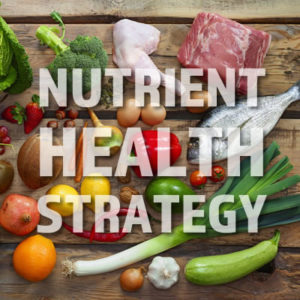The vitamin B family
The B vitamins are B12, B2, B3, B5, B6, B7, B9 and B12. If you look at the recommended daily amount for all of them added together, it comes to 26 micrograms (26/1000th of a gram, or just less than a grain of rice!). The B vitamins are water soluble and our bodies need a regular intake due to excretion. This can easily be achieved with a balanced diet, but people lead busy lives and often eat processed foods that are full of added chemicals, contaminants (such as glyphosate) and eat foods that are low in B vitamins. Our advice is to focus on a whole food B vitamin approach and take a daily multi-vitamin or B vitamin complex. There are some key foods that are vitamin B rich that will really transform your health. You may also need a specific B vitamin to overcome an metabolic or drug problem, or to meet a specific need such as the need to lower blood sugar.
- Eat liver (or a rich liver pate) twice a week.
- Take a teaspoon of nutritional yeast daily.
If you are deficient in one or more B vitamins, you could develop some serious medical conditions.
* Related to the B vitamins
For each of the B vitamins we have put together a strategy for achieving an adequate to therapeutic dose. Taking large doses is fine for some, but certain B vitamins cause side-effects in high dosage.
Stress management
Metabolism & weight loss
Energy and fatigue
Cellular health & oxidation
Diabetes prevention
Heart health
Brain function
Skin health
Hormonal health
Liver health
Nervous system
Vitamin C synergy
Digestive health
Weight loss
Eye health
B Vitamin intake strategy
A great strategy would bes to try and eat:-
- A good portion of quality meat or fish daily.
- Liver and other offal.
- A weekly portion or two of shellfish such as clams, oysters and shrimp.
- Some cruciferous vegetables daily.
- Regular portions of legumes such as chickpeas, lentils and kidney beans.
- Daily dairy in the form of quality cheese, yogurt and milk (grass fed or pastured).
- A couple of eggs each day.
- A daily snack of a handful of almonds, a handful of sunflower seeds and a banana.
Our advice is to take a multi-vitamin or a B-complex vitamin daily PLUS a teaspoon of nutritional yeast daily PLUS eat some form of liver 2 or 3 times a week. The minimum should be to take a supplement, but a whole food approach is way better.
- Nutritional yeast is packed with 6 of these 8 B vitamins (the fortified version also has B12). It's very inexpensive and just one teaspoon a day will hit the RDA of 4, 2 teaspoons will hits all 6. It's not called "vegan fairy dust" for nothing.
- Liver is packed with B vitamins and a whole range of other micro-nutrients. If you are a fan of liver then you are covered as 50-75g portion will smash 6 of the 8 B vitamins and deliver lots of choline too. If you hate liver then liver pâté can be enjoyed and even be made at home (the recipe is so simple). Liver pâté contains mostly liver, so you get all the nutrients without the pure liver taste. It’s creamy and delicious, but above all, it’s one of the most nutritious superfoods you can eat. Animal liver doesn't store toxins; rather, it flushes out toxins.

